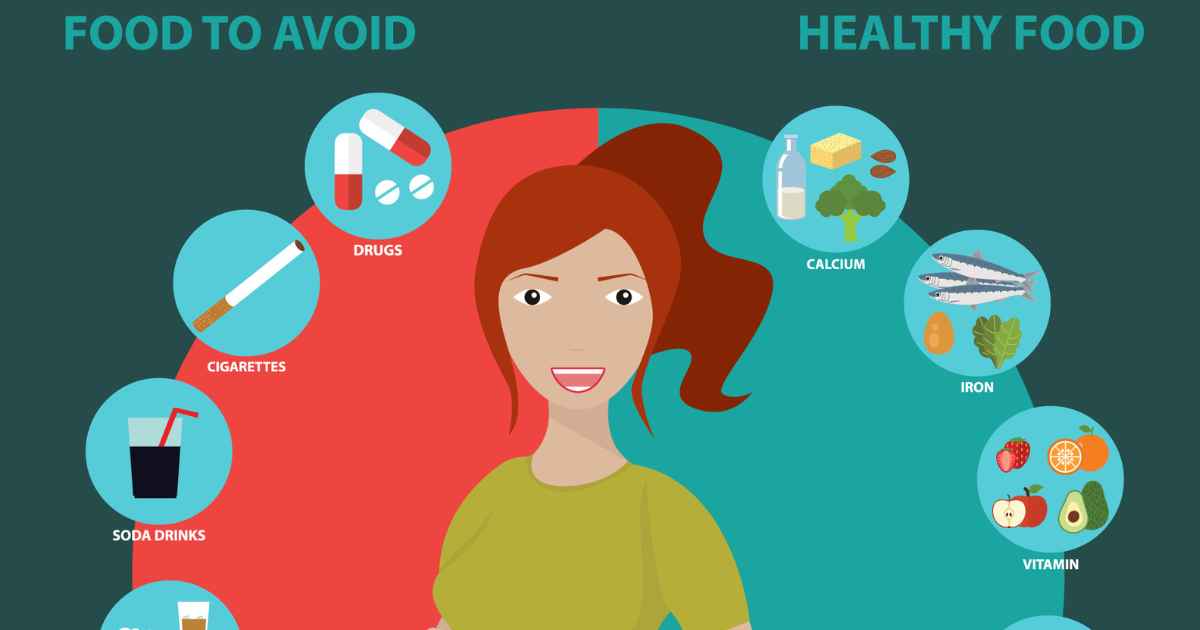Pregnancy is an incredible journey filled with anticipation and excitement. To ensure a healthy pregnancy, it’s essential to take precautions and avoid certain factors that could potentially harm the developing fetus. This article will discuss the important things to avoid in early pregnancy, helping you make informed decisions to protect your baby’s well-being.
Common Lifestyle Habits to Avoid in Early Pregnancy
- Alcohol: Consuming alcohol during pregnancy can lead to fetal alcohol spectrum disorders (FASD), a range of birth defects that can cause physical, intellectual, and behavioral problems.
- Smoking: Smoking exposes the fetus to harmful chemicals and can increase the risk of miscarriage, premature birth, and low birth weight.
- Caffeine: While moderate caffeine consumption is generally considered safe during pregnancy, excessive caffeine intake may be associated with an increased risk of miscarriage.
- Drugs: Avoid all illegal drugs and prescription medications unless specifically prescribed by your healthcare provider. Many drugs can harm the developing fetus.
Foods to Avoid in Early Pregnancy
Please keep in mind the following dietary guidelines during your pregnancy
- Raw or Undercooked Food: Consuming raw or undercooked meat, poultry, eggs, or seafood can raise the risk of foodborne illnesses such as salmonella and listeria.
- Certain Fish: Some fish, like shark, swordfish, tilefish, and king mackerel, contain high levels of mercury. It’s best to limit consumption of these fish to safeguard your baby’s nervous system.
- Unpasteurized Dairy Products: To reduce the risk of listeriosis, a serious bacterial infection, it’s advised to avoid unpasteurized dairy products.
Excessive Weight Gain: Strive for healthy weight gain during pregnancy, as rapid weight gain can heighten the risk of complications such as gestational diabetes and preeclampsia.

Environmental Factors
- Exposure to Toxins: Limit your exposure to harmful chemicals, such as lead, mercury, and pesticides. Avoid painting or renovating your home during pregnancy.
- Cat Litter: If you have a cat, avoid changing litter boxes or ask someone else to do it. Cat feces can contain a parasite called toxoplasma gondii, which can cause serious complications if transmitted to you.
- Hot Tubs and Saunas: Avoid prolonged exposure to hot tubs and saunas, as excessive heat can increase the risk of overheating and dehydration.
Medical Advice
- Over-the-counter Medications: Before taking any over-the-counter medications, consult your healthcare provider. Many common medications can be harmful to the developing fetus.
- Travel: If you’re planning to travel during pregnancy, discuss your plans with your healthcare provider. Some destinations may pose health risks, and certain activities, such as long-distance flights, may be restricted.
- Stress: Managing stress is important for both your physical and mental well-being during pregnancy. Consider relaxation techniques like yoga, meditation, or deep breathing.
Pregnancy Dos and Don’ts
- Do: Eat a balanced diet rich in fruits, vegetables, whole grains, and lean proteins.
- Do: Get regular prenatal care and follow your healthcare provider’s recommendations.
- Do: Exercise regularly, as approved by your doctor.
- Don’t: Smoke, drink alcohol, or use illegal drugs.
- Don’t: Overheat yourself by spending extended time in hot tubs or saunas.
By following these guidelines and seeking regular medical advice, you can significantly reduce the risk of complications and ensure a healthy pregnancy. Remember, if you have any concerns or questions, don’t hesitate to consult your healthcare provider.

Conclusion
A healthy pregnancy requires careful attention to lifestyle choices. Avoid harmful substances like alcohol, tobacco, and drugs, and limit your exposure to toxins. Maintain a balanced diet, including plenty of fruits, vegetables, and whole grains, while avoiding raw or undercooked foods and certain types of fish. Regular prenatal care is essential for monitoring your health and addressing any concerns. By following these guidelines, you can create a nurturing environment for your baby’s development and enjoy a safe and healthy pregnancy.
Important Tips
- Stay Calm: Blood spotting is a common occurrence in early pregnancy, and it often isn’t a serious issue.
- Monitor Your Symptoms: Pay attention to the colour, amount, and frequency of bleeding.
- Seek Medical Advice: Don’t hesitate to consult with your healthcare provider if you have any concerns.
- Rest and Avoid Strenuous Activity: If you experience bleeding, it’s important to rest and avoid strenuous activity.
- Follow Your Healthcare Provider’s Recommendations: Adhere to any treatment or follow-up instructions given by your doctor.
Remember, every pregnancy is unique, and blood spotting can vary from person to person. By seeking timely medical advice and following your healthcare provider’s recommendations, you can ensure the health and well-being of both you and your baby.
Conclusion
Blood spotting in early pregnancy can be a common occurrence, but it can also be a source of anxiety for expectant mothers. While it often isn’t a serious issue, it’s essential to be aware of the potential causes and when to seek medical attention. By understanding the common causes of spotting, monitoring your symptoms, and consulting with your healthcare provider, you can effectively manage any concerns and ensure the health and well-being of both you and your baby.